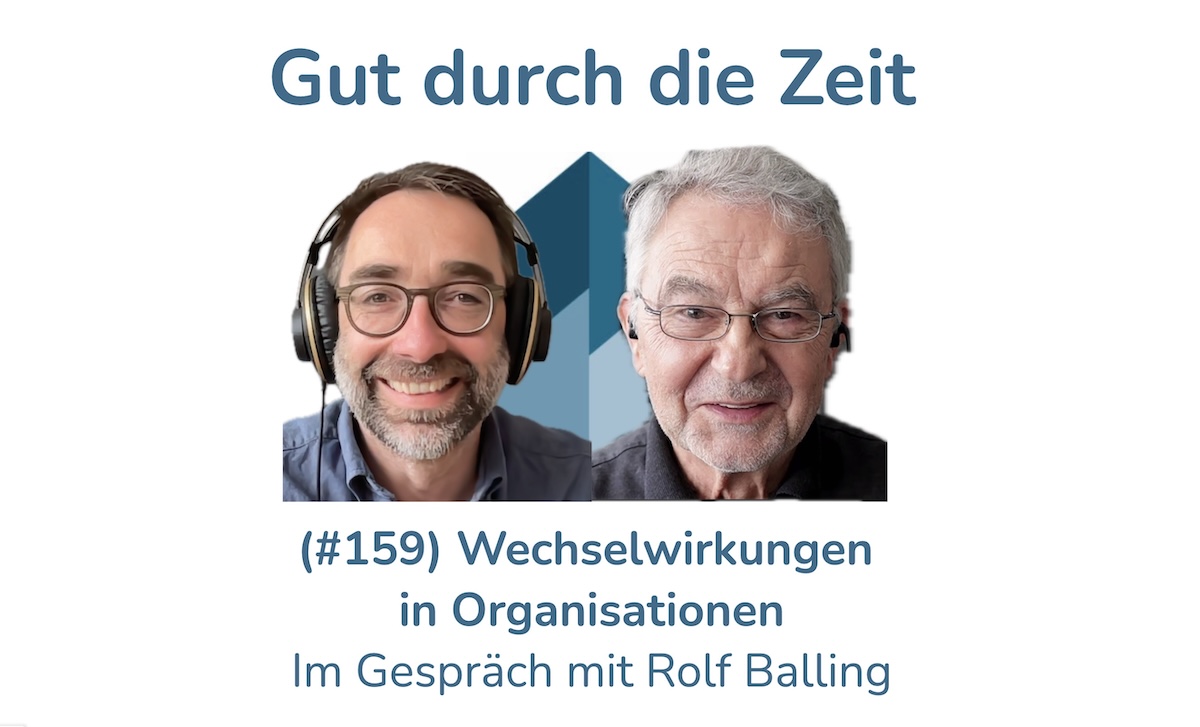INKOVEMA Podcast „Well through time“
#159 – Interactions in organisations
In conversation with Rolf Balling
Well through time. The podcast about mediation, conflict coaching and organisational consulting.
Rolf Balling, Diplom-Kaufmann (University of Cologne) with a specialisation in social psychology, 7 years in management functions (marketing/controlling) at Alcatel-SEL AG, thereafter 10 years as head of the management training and organisational development department, Training in TA up to teaching transaction analysts in the field of organisation (12 years on the job), training in Group dynamics (2 years extra-occupational), training in Systemic counselling (7 years part-time), From 1990 to 2002 Structure of PROFESSIO GmbHAcademy in the field of human resources, as a teaching trainer and managing partner.
Contents:
Interactions in organisations are complex and crucial to their success and sustainability. These interactions can take place both internally between employees and departments and externally between the organisation and its environment. They encompass a wide range of processes, from formal and informal communication flows to strategic decisions that influence an organisation's relationship with its stakeholders.
Play internally Communication and collaboration plays a central role. Effective communication promotes transparency, trust and team spirit, which in turn leads to greater employee involvement and higher productivity. The organisational structure, whether hierarchical or flat, also influences how information and resources flow within the organisation. A flexible structure can improve adaptability and speed of response to internal and external challenges, while an overly rigid structure can create barriers to innovation.
The Organisational cultureCulture, defined by shared values, norms and beliefs, has a direct impact on the way people interact and work together. A positive culture can promote motivation and commitment, while a negative culture can lead to conflict and low morale.
External influence Factors such as market changes, legal framework conditions and socio-economic trends the strategies and operations of an organisation. The ability of an organisation to respond effectively to these external influences depends on its internal dynamics and its strategic orientation.
Leadership is another decisive factor in the interactions within organisations. Leaders play a key role in shaping organisational culture, fostering engagement and innovation, and navigating change. Their behaviour and decisions have a far-reaching impact on the internal harmony and external positioning of the organisation.
The interactions caused by the Involvement of external organisational consultants require careful management in order to minimise conflicts and achieve the greatest possible benefit. An open, trust-based relationship between consultants and all stakeholders in the organisation is crucial to the success of the consulting initiative. It is important that external consultants are seen not just as solution providers, but as partners in the change process.
In summary, the interactions in organisations are complex and multifactorial. They require careful management and continuous adaptation in order to make the organisation resilient, productive and fit for the future.





Leave A Comment